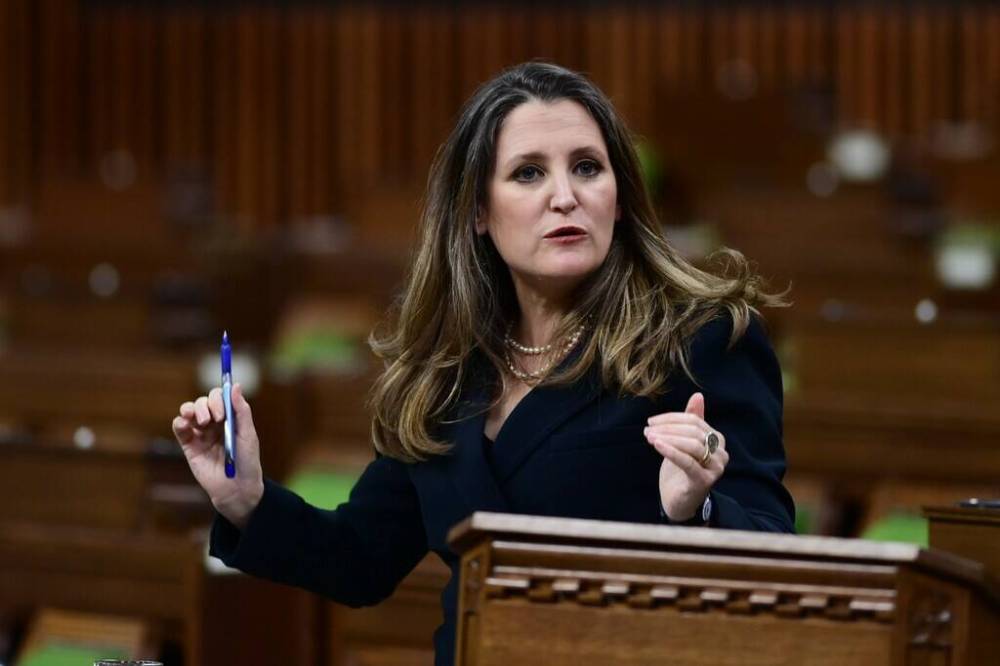Budget must focus on poverty
Advertisement
Read this article for free:
or
Already have an account? Log in here »
To continue reading, please subscribe:
Monthly Digital Subscription
$0 for the first 4 weeks*
- Enjoy unlimited reading on winnipegfreepress.com
- Read the E-Edition, our digital replica newspaper
- Access News Break, our award-winning app
- Play interactive puzzles
*No charge for 4 weeks then price increases to the regular rate of $19.00 plus GST every four weeks. Offer available to new and qualified returning subscribers only. Cancel any time.
Monthly Digital Subscription
$4.75/week*
- Enjoy unlimited reading on winnipegfreepress.com
- Read the E-Edition, our digital replica newspaper
- Access News Break, our award-winning app
- Play interactive puzzles
*Billed as $19 plus GST every four weeks. Cancel any time.
To continue reading, please subscribe:
Add Free Press access to your Brandon Sun subscription for only an additional
$1 for the first 4 weeks*
*Your next subscription payment will increase by $1.00 and you will be charged $16.99 plus GST for four weeks. After four weeks, your payment will increase to $23.99 plus GST every four weeks.
Read unlimited articles for free today:
or
Already have an account? Log in here »
Hey there, time traveller!
This article was published 07/04/2022 (1347 days ago), so information in it may no longer be current.
OTTAWA — The Trudeau government will introduce its budget today, the first budget delivered under the confidence supply agreement between the NDP and Liberals. All eyes will be on Finance Minister Chrystia Freeland as concerns mount over rising inflation, the need to increase defence spending, health-care transfer payments and a commitment to social programs as a result of the deal with the NDP.
One thing is certain: the federal government should continue its path of reducing the poverty rate in Canada. This will not only have long-term benefits for the economy, but it is also the right thing to do. The implementation of a national dental and pharmacare program will be one important step. A national daycare program, now in place, was another.
According to Statistics Canada, between 2019 and 2020, the overall poverty rate fell by more than one-third, from slightly more than 10 per cent to 6.4 per cent. That means more than 1.4 million fewer Canadians are now living in poverty, including 332,000 children and 162,000 seniors. Even more importantly, the poverty rate has been cut almost in half since 2015, down from 14.5 per cent.

Another measure, the post-income tax Low Income Measure (LIM-IAT), which counts poverty against disposable household income, shows another drop. The LIM-IAT rate was at an all-time low in 2020, at just over nine per cent, down more than three per cent from 2019. These numbers should count as a Liberal victory.
Yes, these are pre-COVID figures, but the current statistics in Canada indicate the unemployment rate is at or below pre-pandemic levels. In other words, people are working again and, as reported earlier this week, in some sectors of Manitoba there are labour shortages. The economy is returning to almost normal.
However, the costs of essentials are on the rise, and this will have a detrimental effect on the progress the government has made, particularly for those who are already disadvantaged. This is what the Liberal budget should focus on to ensure the trend toward poverty reduction continues.
One of the first recommendations from the National Advisory Council on Poverty is that the government commit to reduce poverty “by 50 per cent in 2030 for marginalized populations.”
This could include skills training, including improving literacy and numeracy rates. According to StatCan, between 2015 and 2018, low literacy rates for 15-year-olds increased by almost 30 per cent. Low numeracy rates have also gone up by more than 13 per cent.
Immigrants and Indigenous people have lower average literacy and numeracy skills and, as a result, find it more difficult to compete in the job market. Well-designed skills training that effectively focuses on language ability, as well as post-immigration language training, especially for newcomers to Canada, is a must.
For Indigenous populations, the focus should be on improving skills development while they are in the educational system both on and off reserve. After graduation, job-training programs to improve skills will also be effective. Ensuring that the training is culturally sensitive and providing additional supports from elders within the community can go a long way in facilitating retraining that adequately meets the needs of Indigenous workers.
The council also suggests Canada should strengthen its commitment to the social safety net. During the pandemic, it became clear how important government programs were to our quality of life. However, there were many, including the disabled, homeless and those working the “gig” economy who felt sidelined by the array of programs and benefit cheques offered.
All levels of government — municipal, provincial and federal — must now examine how they can do better and work together to address those concerns.
On budget day, Canada’s finance minister has to do many things. She will have to talk about a war in Ukraine, deliver on a new pharmacare and dental-care program, and talk about rising inflation and the deficit and their impact on ordinary Canadians.
But Freeland cannot forget the urgent need to address poverty and those who continue to be marginalized in this country. The Liberal government should not slow the exceptional progress it has made on reducing poverty, particularly in a time when the essentials have become more expensive.
Skills training and a strong commitment to our social safety net, including addressing those who were forgotten during the pandemic, must be part of the Liberal plan.
Shannon Sampert holds the Eakin Visiting Fellowship in Canadian Studies at McGill University and is the former politics and perspectives editor of the Winnipeg Free Press.






